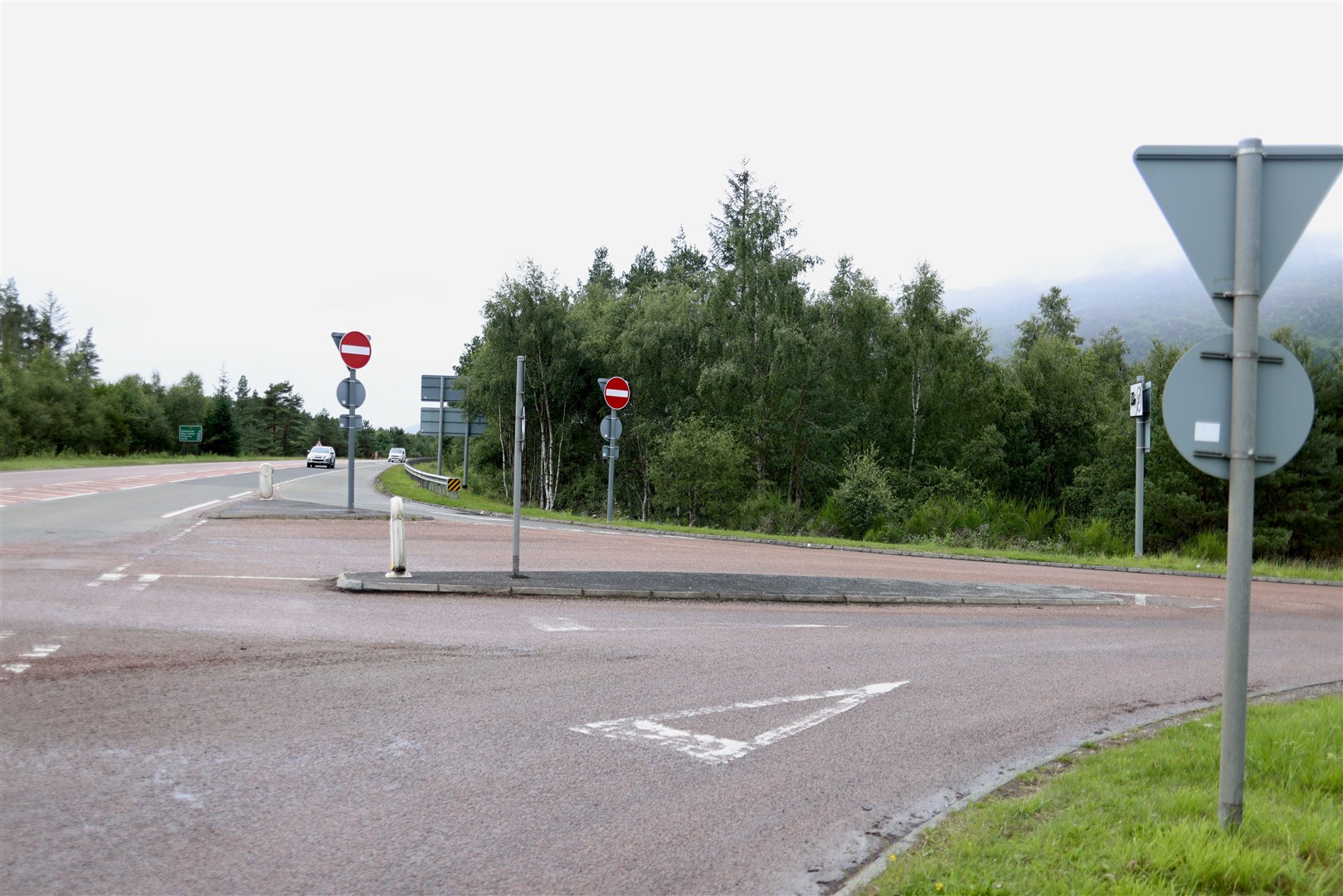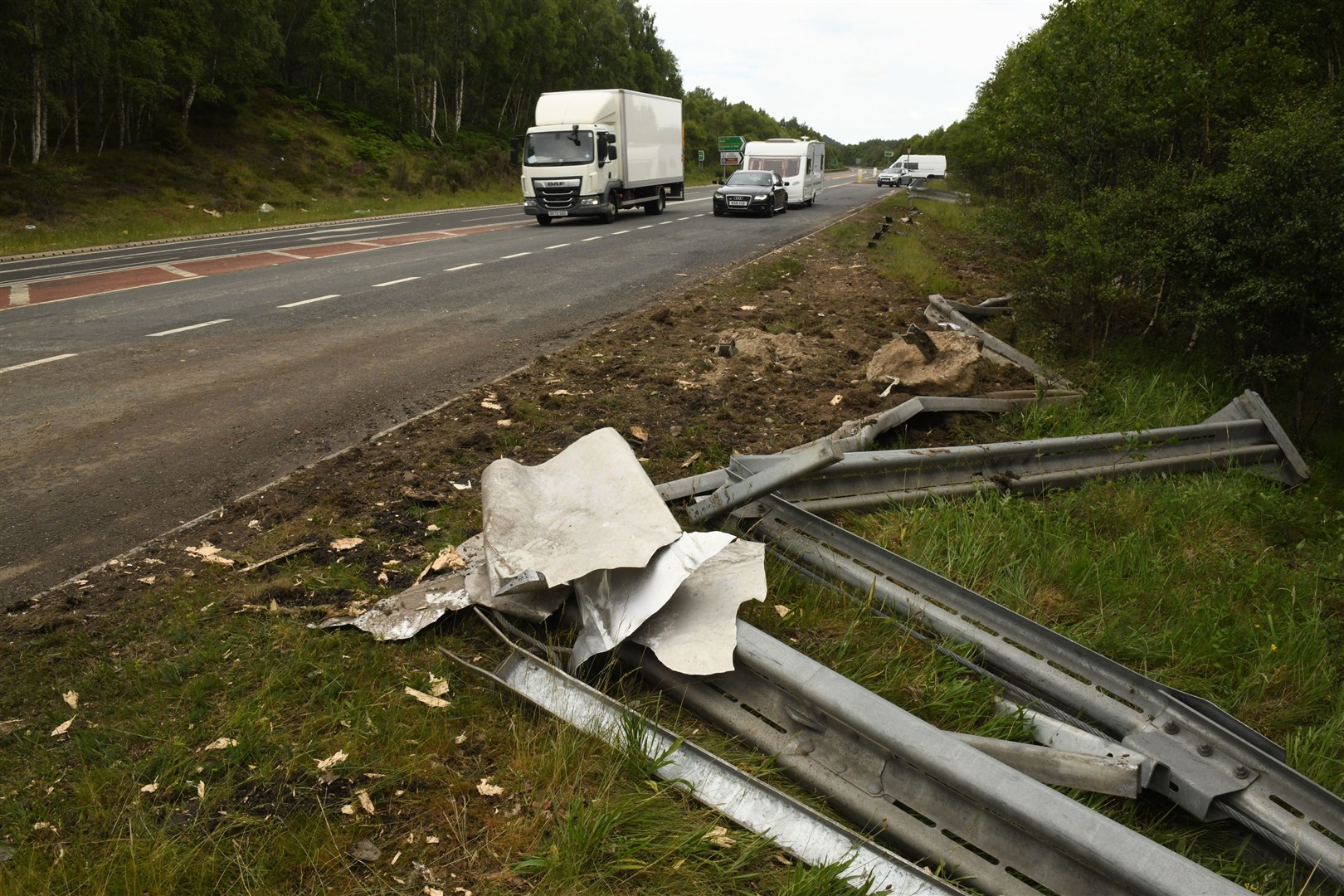YOUR VIEWS: Transport Scotland’s use of A9 ‘book’ visibility …

Transport Scotland’s response to concerns about visibility at the Ralia junction on the A9 are doubly disingenuous.
In the narrow context of a side road junction with a single carriageway stretch of the A9, relying on ‘book’ visibility standards is questionable because:
• Many drivers on the A9 are exceeding the speed limit on which those standards are based;
• Foreign drivers, and the growing cohort of older British drivers, will have slower reaction times;
• You can’t look both ways at once: in the couple of seconds that it takes to make a final check that there’s nothing coming from one direction on the major road, a vehicle may have appeared from the other direction that looked clear a couple of seconds ago.
When the major road is busy (as the A9 often is at this time of year) this can be a particular problem.
More widely, the excuses are doubly disingenuous because the Ralia junction is not an isolated example of roadside vegetation management having been neglected for many years.
Look at almost any curve on the A9:
You’ll find that the forward visibility on which safe overtaking depends is obstructed by trees which have been allowed to grow into the visibility spaces built into the design of the road.
The curve to the south of the Ralia junction is just one example, and not the worst one.
I was struck by Dick Webster’s letter suggesting roundabouts.
I have long thought that rebuilding single/dual carriageway interfaces as roundabouts would be an answer to the much-touted ‘problem’ of driver confusion.
The Tore roundabout certainly leaves you in no doubt that you’re switching between dual and single carriageway.
On the A9 as a whole, introducing roundabouts might be difficult as the interfaces don’t aways align with side roads.
But would roundabouts be worth trying on the single-carriageway-to-single carriageway junctions in Badenoch and Strathspey such as Ralia and Granish?
Andrew McCracken
Grantown.
* * *
Dollop of jam will send a message to campervan 'parasites'
Five camper vans were overnighting in Glen Banchor at Newtonmore at 8am last Thursday ( August 3). Fifty plus years ago, the then new owner of the estate posted a conspicuous notice warning: ‘Any dog found worrying sheep will be shot’.
It was not subtle but it remedied some obvious detrimental behaviour.
How about a sign for today saying ‘Campervans not allowed: £££ will be charged for staying overnight?’
Alternatively a big dollop of jam on the windscreen under a sheet of newspaper would give the parasite parker a different start to the day and an indication that they are not welcome.
Gregor Rimell
Broomlea
Newtonmore.
* * *
Fergus Ewing claim was well wide of mark
In his or her letter, responding to my suggestion that it might be better to focus more on upgrading rail connections with the south rather than exclusively on dualling the A9, your anonymous correspondent barely touched on the issue at all.
Instead he or she replied with a cynical diatribe against the owners and renters of luxury accommodation in general, and my family’s ownership of such property in particular.
The letter contained two factual inaccuracies and four totally erroneous speculations.
Such a letter does not merit a detailed reply.
However, I would like to correct one of your correspondent’s assertions — that my letter was motivated by a desire ‘to have a dig at SNP dissenter Fergus Ewing’.
I have long regarded Fergus Ewing (below) as one of our more independent-minded, well- motivated and pragmatic MSPs, and there was absolutely no political intent in my raising this issue in your columns.
While I have a strong respect for Fergus, I certainly do not feel obliged to agree with everything he stands for.
I am very hopeful, he and other MSPs will join the conversation and explain why they believe road dualling rather than improved rail connections is the preferred solution.
Angus Tulloch
Kingussie.
* * *
Have courage of your convictions in Strathy
I am a fan of the Strathy’s letters page but was disappointed that you published anonymously the attack on Angus Tulloch.
I think that like most quality newspapers, and increasingly the web, you should not publish letters anonymously unless there is a very good reason. And the ability to make personal attacks without retaliation is not such a reason.
I am all for the robust debate which characterises the Strathy letter page but correspondents should be prepared to identify themselves.
It is a secondary issue that the letter was incoherent and full of arguably inaccurate and irrelevant details far from the issue of improving the rail link or the A9. But that is a strong reason your correspondent should be accountable for them.
Would you consider having an explicit and public policy that you would not normally accept letters unless the author’s name was published? If not I think the letters page will degenerate into a boxing ring of slanging matches from being a forum for robust yet civilised debate.
Peter Mackay
Dunachton Road
Kincraig.
* * *
No other political party took on A9 dual challenge

Yes indeed, it’s a red letter day for me to get public support, even if it’s only in part agreement from my friend Ian Gibson in last week’s Strathy! However I have never tried to downplay the serious nature of the A9 situation.
In my letters I have tried to balance the actual reasons for accidents, against the unforeseen delays preventing its completion.
Since Ian has worked with Holyrood ministers he will be aware that no political party in government, including his own, has ever completed all of its promises or kept to strict deadlines.
Furthermore I cannot agree with him that ministers, far less our current First Minister, ‘must have lied’ about the A9 position.
I think the reality of the Tories and Labour at Westminster is beautifully exposed in the once excellent Yes Minister TV series.
The fact is, with the support of the police and motoring organisations, the SNP remains the only party to take up the challenge of the A9, having completed other large engineering undertakings on time and often below budget.
Finally I am sure Ian and I will continue to amicably agree to disagree on independence; although I stand with Sir Walter Scott who said:-
Breathes there the men, with soul so dead
Who never to himself hath said,
This is my own, my native land!
Grant Frazer
Newtonmore.
* * *
Figures simply do not add up
Clark Cross is incorrect in his Strathy letter (August 3) to claim ‘The UK and Scottish governments are convinced that wind generated electricity is the way to reach net zero’. The British Energy Security Strategy plans to use a mix of fuels including wind, solar, gas with carbon capture and storage and nuclear energy, to decarbonise our electricity supply by 2035.
I do not imagine that very many, even among Mr Cross’s ‘green zealots’ envisage generating all our electricity from only wind energy.
He asks where we will put the needed wind turbines. There will be some more room for them, when England allows new onshore windfarms.
Mr Cross’s statistics about our current electricity supply do not add up to 100 per cent. The National Grid reports that seven per cent of electricity in 2022 was generated from hydro and biomass; they are perhaps part of his missing 11 per cent.
No doubt these sources will be included in the fuel mix to decarbonise our electricity supply, as may emerging tide and wave power.
So we do not need to replace all but wind and solar to generate electricity, as calculated by Mr Cross. He asks where the UK will get its electricity from, when the wind does not blow.
The mix of fuels will compensate much when there is little wind. Also, the British Energy Security Strategy has plans to store energy in the form of hydrogen, from pumping water uphill, and with batteries.
Of course, we will continue to trade electricity with neighbouring countries to equate supply with demand.
It is good to question how we will generate electricity, while reaching net zero, which Mr Cross tries to do. The Climate Change Committee criticised the Government in June for making insufficient progress towards its net zero target.
Dermot Williamson
Kincraig.
Do you want to respond to this article? If so, click here[2] to submit your thoughts and they may be published in print.
References
- ^ Click here to sign up to our free newsletters! (www.strathspey-herald.co.uk)
- ^ here (www.strathspey-herald.co.uk)